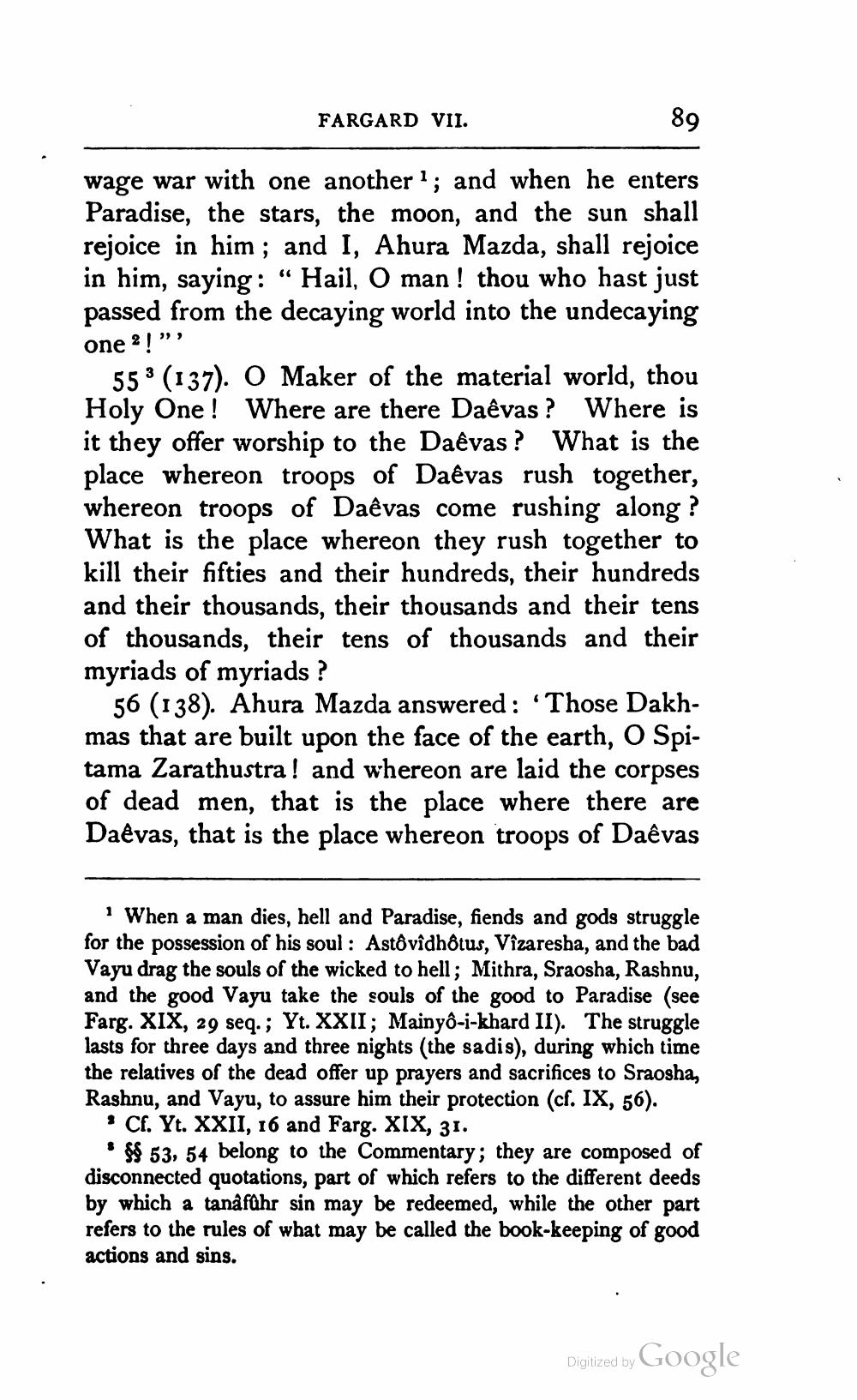________________
FARGARD VII.
89
wage war with one another ; and when he enters Paradise, the stars, the moon, and the sun shall rejoice in him ; and I, Ahura Mazda, shall rejoice in him, saying: “Hail, O man! thou who hast just passed from the decaying world into the undecaying
one ?!”,
553 (137). O Maker of the material world, thou Holy One! Where are there Daêvas ? Where is it they offer worship to the Daêvas ? What is the place whereon troops of Daêvas rush together, whereon troops of Daêvas come rushing along ? What is the place whereon they rush together to kill their fifties and their hundreds, their hundreds and their thousands, their thousands and their tens of thousands, their tens of thousands and their myriads of myriads ?
56 (138). Ahura Mazda answered: “Those Dakhmas that are built upon the face of the earth, O Spitama Zarathustra! and whereon are laid the corpses of dead men, that is the place where there are Dalvas, that is the place whereon troops of Daêvas
1 When a man dies, hell and Paradise, fiends and gods struggle for the possession of his soul : Astôvîdhôtus, Vizaresha, and the bad Vayu drag the souls of the wicked to hell; Mithra, Sraosha, Rashnu, and the good Vayu take the souls of the good to Paradise (see Farg. XIX, 29 seq.; Yt. XXII; Mainyo-i-khard II). The struggle lasts for three days and three nights (the sadis), during which time the relatives of the dead offer up prayers and sacrifices to Sraosha, Rashnu, and Vayu, to assure him their protection (cf. IX, 56).
• Cf. Yt. XXII, 16 and Farg. XIX, 31.
* $$ 53, 54 belong to the Commentary; they are composed of disconnected quotations, part of which refers to the different deeds by which a tanáfahr sin may be redeemed, while the other part refers to the rules of what may be called the book-keeping of good actions and sins.
Digitized by Google




